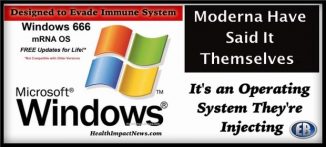
ER Editor: British Twitter users have been complaining in the last few days about how meatless meat is being pushed on them through advertising. On Twitter you can find the trending hashtag #veganuary2021 and #veguanary pushing the vegan line. So is #LikeMeat.
********
How Healthy Are These Meatless Burgers?
EMILY GELSOMIN, MLA, RD, LDN

Plant-based burgers are not a novel concept. But new products designed to taste like meat are now being marketed to vegetarians and meat-eaters alike. Impossible Burger and Beyond Meat’s Beyond Burger are two such options.
Eating these burgers is touted as a strategy to save the earth, casting meat as a prehistoric concept. Both brands also offer up their products as nutritious alternatives to animal protein.
But how do they stack up? It turns out the answer may depend on whether your priorities lie with your personal health or the health of the planet.
The Good News: Meatless Burgers Are A Good Source Of Protein, Vitamins, And Minerals
The protein content of these newer plant-based burgers has been created to compete with beef and poultry gram for gram. Both the Impossible Burger and Beyond Burger have comparable amounts, the former deriving protein mainly from soy and the later from peas and mung beans.
Impossible Burger also adds vitamins and minerals found in animal proteins — like vitamin B12 and zinc — in amounts equal to (and in some cases, greater than) both red meat and poultry. This is a plus for vegetarians, because these nutrients are typically harder to come by when relying solely on foods from the plant kingdom. Vitamin B12, for instance, is found primarily in animal sources, and strict vegetarians and vegans must get their intake from fortified sources. What’s more, plant compounds such as phytic acid bind to minerals, which can increase requirements of zinc by 50% and may necessitate consuming about two times as much iron. For those who eat at least some animal protein, the vitamin and mineral fortification is less of a selling point.
This doesn’t mean a plant-focused diet is lacking in nutrients. Beans, for instance, are a good source of both zinc and iron. They are also an important protein resource. Black bean burgers are never going to be mistaken for hamburgers, but they are typically a solid choice when it comes to health.
The Bad News: Meatless Burgers Are Heavily Processed And High In Saturated Fat
The same can’t necessarily be said of the aforementioned beef substitutes, which have been created to mimic what many people love about a burger — the red juicy center and meaty taste. Along with the ambition to replicate hamburgers comes a comparable amount of saturated fat. Since diets higher in saturated fat are associated with increased rates of both heart disease and premature death, they may not be the type to opt for if your ambitions are purely health-related. They are also a significant source of sodium, particularly for those on salt-restricted diets.
The following chart shows how the newer, meatless burgers stack up nutritionally against beef burgers, turkey burgers, and black bean burgers.
| Calories | Fat (g) | Sat fat (g) | Chol (mg) | Sodium (mg) | Carb (g) | Fiber (g) | Protein (g) | |
| Impossible Burger (4 oz) | 240 | 14 | 8 | 0 | 370 | 9 | 3 | 19 |
| Beyond Burger (4 oz) | 250 | 18 | 6 | 0 | 390 | 3 | 2 | 20 |
| 85% lean ground beef (4 oz) | 240 | 17 | 6 | 80 | 80 | 0 | 0 | 21 |
| Ground turkey (4 oz) | 170 | 9 | 2 | 80 | 70 | 0 | 0 | 22 |
| Black bean burger (Sunshine brand) (2.7 oz) | 260 | 16 | 1.5 | 0 | 190 | 19 | 8 | 10 |
Even though legumes are sourced for protein in the branded meatless options, their health benefits are somewhat blunted by the high degree of processing involved. For instance, moderate amounts of whole soy foods, like edamame (soybeans), have been linked to reduced rates of cancer. This protection is often attributed to isoflavones, a subgroup of plant compounds called flavonoids thought to provide health benefits. Unfortunately, in the case of the Impossible Burger, one serving contains less than 8% of the isoflavones found in one serving of whole soy foods (one serving is roughly a quarter of a block of tofu or 1 cup of soymilk).
Poultry-based burger alternatives, such as turkey burgers, also do not contain significant amounts of protective plant compounds. On the other hand, they offer less saturated fat.
If a lower risk of diseases like cancer and heart disease is your ultimate goal, aim for the kind of veggie burgers that showcase their beans, grains, and seeds front and center. Choose legume-based varieties studded with seeds and whole grains, like brown rice and quinoa.
The Bottom Line: Meatless Burgers Are Good For The Planet, But Not Always Good For Our Health
If you love the taste of a burger, but find the sustainability of raising cattle hard to stomach, beefless alternatives that mimic the real thing are worth a try. Producing the newer, plant-based burgers requires considerably less water and generates substantially less greenhouse gas emissions compared with traditional beef burgers. This is certainly an important consideration for the well-being of our planet, but they may not be the best option for the health of our bodies.
Read more at www.health.harvard.edu
************
Source

••••
The Liberty Beacon Project is now expanding at a near exponential rate, and for this we are grateful and excited! But we must also be practical. For 7 years we have not asked for any donations, and have built this project with our own funds as we grew. We are now experiencing ever increasing growing pains due to the large number of websites and projects we represent. So we have just installed donation buttons on our websites and ask that you consider this when you visit them. Nothing is too small. We thank you for all your support and your considerations … (TLB)
••••
Comment Policy: As a privately owned web site, we reserve the right to remove comments that contain spam, advertising, vulgarity, threats of violence, racism, or personal/abusive attacks on other users. This also applies to trolling, the use of more than one alias, or just intentional mischief. Enforcement of this policy is at the discretion of this websites administrators. Repeat offenders may be blocked or permanently banned without prior warning.
••••
Disclaimer: TLB websites contain copyrighted material the use of which has not always been specifically authorized by the copyright owner. We are making such material available to our readers under the provisions of “fair use” in an effort to advance a better understanding of political, health, economic and social issues. The material on this site is distributed without profit to those who have expressed a prior interest in receiving it for research and educational purposes. If you wish to use copyrighted material for purposes other than “fair use” you must request permission from the copyright owner.
••••
Disclaimer: The information and opinions shared are for informational purposes only including, but not limited to, text, graphics, images and other material are not intended as medical advice or instruction. Nothing mentioned is intended to be a substitute for professional medical advice, diagnosis or treatment.





Yes, it is. And you can get it without prescription, too.
FYI.
You know, it is even possible to get vitamine B12 on prescription at your chemist.